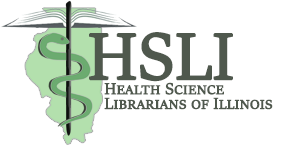(via Samantha Harlow, University of North Carolina at Greensboro)
COVID-19 has impacted and shifted how all libraries and public institutions provide services and resources; the future of libraries will depend on librarians, teachers, and designers to learn and grow from these transitions. Different types of libraries (academic, public, special, and school) were impacted by the pandemic in different ways, and learned valuable lessons on how to shift and transition in a challenging time. The upcoming ABC-CLIO book Sustainable Online Library Services and Resources: Learning from the Pandemic will include chapters by librarians, instructional designers, educators, and faculty from all over the world on how they pivoted services and resources online to continue to serve patrons during a pandemic and beyond, as well as which services and programs will be sustainable and scalable to continue to best help patrons. This book will serve as a road map of what services and resources can be implemented in a post-pandemic world, and for challenges that might arise in the future.
The topics for chapters will include instruction strategies, course design and creation, accessibility and equity issues, collection management, public service techniques, programming, and more. Online learning in the delivery of programs and services can prepare librarians for many different situations, emergencies, or challenges that might arise, and provide lessons that libraries will keep and implement from their experiences with COVID-19. The recent pandemic changed all of society, and this book will showcase a diverse range of perspectives on how online learning has changed and grown over the past year, with a focus on what services and resources are here to stay for libraries across the globe.
Primary Audience: Identify the specific audiences and kinds of readers for this work (e.g., reference libraries, youth services coordinators, medical librarians in academic and/or medical center libraries, directors of large urban libraries, emerging technology librarians) and comment on the value of this work to these specific readers.
We are seeking proposals and recruiting contributors for book chapters. We are looking for chapters around 4500-6000 words per chapter. Our proposed submission date to the publisher is July 2022. If accepted, authors will submit chapters by December 2021 or January 2022.
Topics may include, but are not limited to, the following.
- Administration Shifts and Sustainable Practices Post Pandemic
- Virtual Onboarding in a Library
- Virtual Programming in Various Library Settings
- Online Learning and Instruction: what will we keep and what will we toss
- Information Literacy and Engaging Learners at a Distance
- Working with Patrons at a Distance in a Public Library
- Virtual Storytime and Storytelling
- School Media and Transitioning in a School during a Pandemic
- Makerspaces and Ever Changing Services
- Library and Information Science (LIS) Practicums, Courses, and Programming
- Shifting Online Resources and Collection Management
- Access Services, EReserves, Curbside Pick Up, and Interlibrary Loan Shifting
- OER, Open Pedagogy, and Shifting Online
- Library Workers and Well Being during a Pandemic
- Equity, Diversity, and Inclusion and Impacts from COVID-19
- Digital Divide, Equity, and lessons learned from COVID-19
- Post COVID-19 and Sustainability in Online Programming, Instruction, Resources, and Services
Please fill out this form with the title of your proposed chapter and a 200-300 word proposal by Friday July 30, 2021. The editors will let you know by August 27, 2021, if you’re accepted and next steps. Please e-mail learningfromthepandemic@gmail.com with any questions or concerns.
The publisher, ABC-CLIO, has accepted this book.
The book editors are Moushumi Chakraborty, Director of External Library Services, Salisbury University; Samantha Harlow, Online Learning Librarian, UNC Greensboro; and Heather Moorefield Lang, Associate Professor of Library and Information Science (LIS), School Library Media Specialization, UNC Greensboro.
